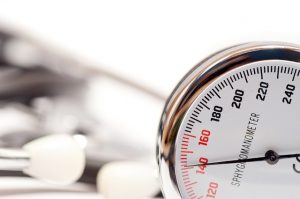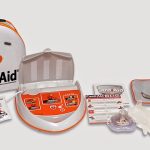High blood pressure, also known as hypertension, is a common condition that affects millions of people worldwide. It occurs when the force of blood against the walls of the arteries is too high, which can lead to serious health problems such as heart disease, stroke, and kidney failure. Managing blood pressure is crucial for maintaining good health and preventing these complications.
While medication is often prescribed to lower blood pressure, there are also natural methods that can be effective in reducing hypertension. These methods include dietary changes, exercise, stress management techniques, herbal remedies, and supplements. By incorporating these strategies into your lifestyle, you may be able to lower your blood pressure and improve your overall health.
Dietary Changes to Lower Blood Pressure
 One of the most important ways to manage blood pressure naturally is through a healthy diet. Eating a diet that is rich in fruits, vegetables, whole grains, lean protein, and low-fat dairy products can help lower blood pressure. On the other hand, consuming foods that are high in sodium, saturated fat, and added sugars can increase blood pressure.
One of the most important ways to manage blood pressure naturally is through a healthy diet. Eating a diet that is rich in fruits, vegetables, whole grains, lean protein, and low-fat dairy products can help lower blood pressure. On the other hand, consuming foods that are high in sodium, saturated fat, and added sugars can increase blood pressure.
To reduce your sodium intake, it’s important to limit processed foods and choose fresh or frozen fruits and vegetables instead. You can also use herbs and spices to add flavor to your meals instead of salt. In addition, it’s important to limit alcohol consumption as it can raise blood pressure.
A sample meal plan for lowering blood pressure might include oatmeal with berries for breakfast, a salad with grilled chicken for lunch, and baked salmon with roasted vegetables for dinner. Snacks could include fresh fruit or raw veggies with hummus.
Exercise to Reduce Blood Pressure
Regular exercise is another effective way to manage blood pressure naturally. Exercise helps strengthen the heart and improve circulation, which can lead to lower blood pressure over time. Aerobic exercise such as walking, jogging, cycling or swimming has been shown to be particularly effective in reducing blood pressure.
It’s recommended to aim for at least 30 minutes of moderate-intensity exercise most days of the week. If you’re new to exercise, start slowly and gradually increase the intensity and duration of your workouts. You can also incorporate strength training exercises such as weight lifting or resistance bands to further improve your cardiovascular health.
Stress Management Techniques
Stress is a common trigger for high blood pressure, so learning how to manage stress is an important part of natural blood pressure management. Techniques such as meditation, deep breathing, and yoga can help reduce stress and lower blood pressure.
Meditation involves focusing your attention on a specific object or thought to help calm the mind and reduce stress. Deep breathing exercises involve taking slow, deep breaths to help relax the body and reduce tension. Yoga combines physical postures with breathing techniques and meditation to promote relaxation and reduce stress.
In addition to these techniques, making lifestyle changes such as getting enough sleep, practicing good time management, and avoiding stressful situations can also help reduce stress levels and improve blood pressure.
Herbal Remedies for Lowering Blood Pressure
Certain herbs have been shown to have a beneficial effect on blood pressure. These include garlic, hawthorn, ginger, and turmeric. Garlic has been shown to lower blood pressure by relaxing the blood vessels and improving circulation. Hawthorn has been used traditionally to treat heart disease and has been shown to improve blood flow and lower blood pressure.
Ginger has anti-inflammatory properties that may help improve cardiovascular health, while turmeric has been shown to have antioxidant properties that may protect against heart disease. It’s important to note that while these herbs may be effective in lowering blood pressure, they should be used with caution and under the guidance of a healthcare provider.
Supplements to Lower Blood Pressure
Certain supplements may also be effective in lowering blood pressure naturally. These include omega-3 fatty acids, magnesium, and potassium. Omega-3 fatty acids, found in fish oil supplements, have been shown to improve cardiovascular health and lower blood pressure.
Magnesium is an important mineral that helps regulate blood pressure and can be found in supplement form or in foods such as nuts, seeds, and leafy green vegetables. Potassium is another mineral that helps regulate blood pressure and can be found in foods such as bananas, sweet potatoes, and spinach.
It’s important to consult with a healthcare provider before taking any supplements, as they may interact with other medications or have potential side effects.
Managing blood pressure is crucial for maintaining good health and preventing serious complications such as heart disease and stroke. While medication is often prescribed to lower blood pressure, there are also natural methods that can be effective in reducing hypertension.
These methods include dietary changes, exercise, stress management techniques, herbal remedies, and supplements. By incorporating these strategies into your lifestyle and working with a healthcare provider to monitor your blood pressure, you can improve your overall health and reduce your risk of developing serious health problems.








